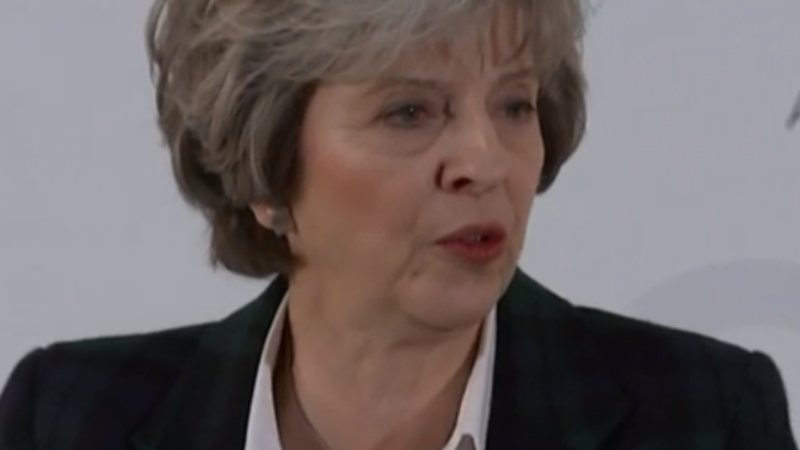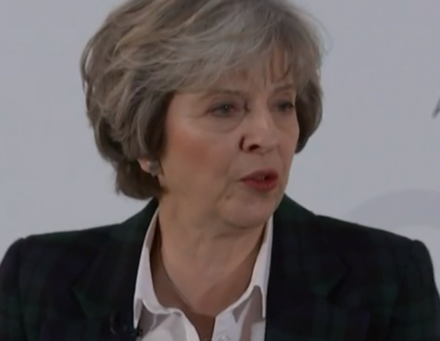

Theresa May has thrown down the gauntlet for Labour in her speech on Brexit today, when she began to lay down her government’s negotiating position. LabourList sets out the pitfalls that may lay ahead.
Giving both houses of parliament a vote – a bold dare for Labour to “frustrate” things?
May decided to call the opposition’s bluff. After her supposed success in getting parliament to vote for the triggering of article 50 – with Keir Starmer’s victory, forcing the Conservatives to publish details on their bottom lines – she has decided to test Labour’s appetite for frustration in the Commons.
Now we know the final Brexit deal will go before parliament for a vote, which means that any attempt to question it will no doubt be painted as anti-democratic. This decision by May, which Number 10 will no doubt try to sell as a concession, seems designed to push Labour into a corner – you can vote against it if you like, but risk being tarred as trying to flout the will of the British people.
Britain will leave the single market
It was the confirmation of what many in the labour movement have been dreading – that May intends to make Britain leave the single market as she continues to wrestle with her backbenchers over freedom of movement.
Earlier today, Len McCluskey warned against leaving the bloc, fearing it could hit British jobs, and most Labour MPs have said that this is a key issue for them. The concern is, that whilst Britain would lose the free movement requirements so unpopular in some places at the moment, goods could be subject to tariffs.
A speech for the 17 million leave voters – or for everyone?
May’s rhetoric in the speech was an attempt to be conciliatory. With her description of Britain going forward as “more outward looking than ever before”, and her praise of the country’s multiculturalism, diversity and values, she clearly wanted to be a prime minister for all.
However, her whitewashed presentation of Britain’s “international” history, alongside the name-checking of former colonies, left a rather different taste in the mouth. There were more than a few hints towards what some people regard as the greatness of Empire, which will anger many on the left.
Clearly, apparent allusions to Britain’s imperial past are clumsy at best. Labour must ensure that we remain the party of all Britons and not a party of revisionist history.
A threat to Europe on tax – or an opportunity for Labour?
May repeated Philip Hammond’s thinly-veiled threat to Europe that if Briton does not get a good deal, then the government will set “competitive tax rates” to pursue trade in a race to the bottom of levies on big business.
Such a restructuring of the tax system would harm the funding for public services and it is unclear how Britain would pay for schools, the NHS and the armed forces if exchequer revenues slump.
This must surely be an option of last resort for May – she must know that this would be likely to boost Labour as it put in jeopardy the future of public services as we know them.
That’s it – but is that the whole plan?
After May’s speech, Downing Street aides declared she had said all she wishes to say about the government’s. It remains to be seen whether – with pressure applied – a white paper and proper parliamentary scrutiny can be delivered.
With her ironic use of the phrase “parliamentary sovereignty” – the one used by business woman Gina Miller, which prompted “Remoaner”-type attacks from the right-wing press – it remains to be seen whether May will allow parliament to scrutinise the greatest transformation the country has seen in four decades.




More from LabourList
Economic stability for an uncertain world: Spring Statement 2026
‘Biggest investment programme in our history’: Welsh Labour commit to NHS revamp if successful in Senedd elections
James Frith and Sharon Hodgson promoted as government ministers